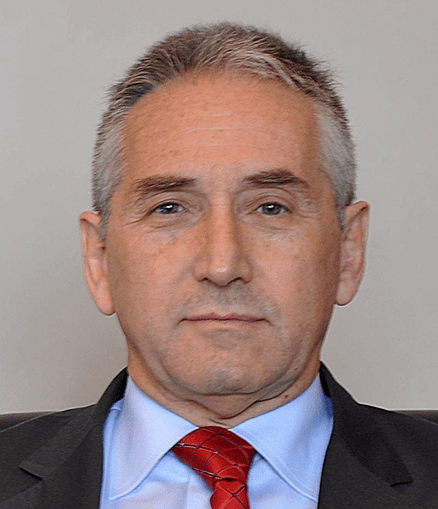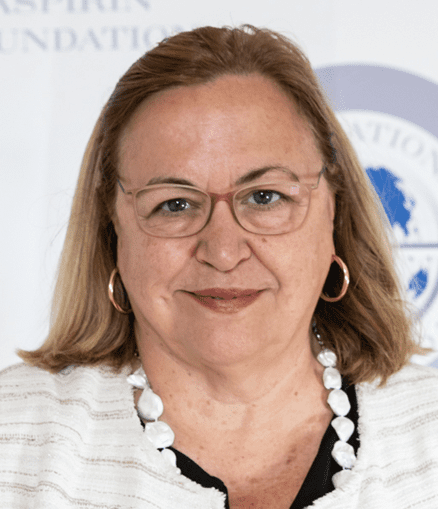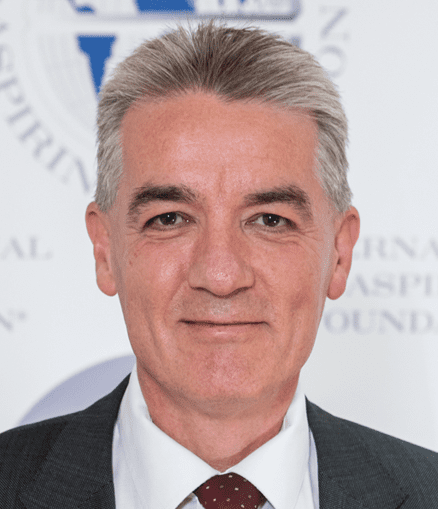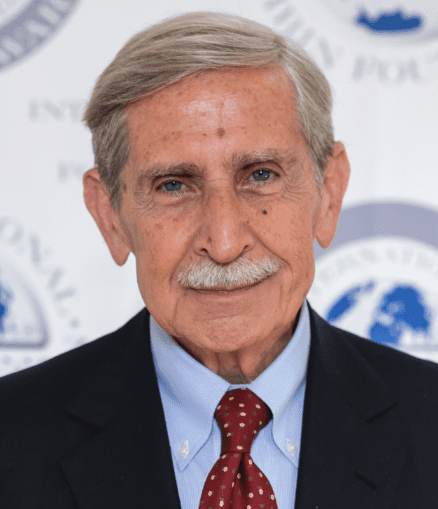Professor Mazzeffi
Maryland, USA
During the 2020 pandemic our understanding of severe acute respiratory syndrome coronavirus-2 (SARS-CoV-2) has rapidly evolved. We now know that coronavirus disease 2019 (COVID-19), is a multi-system disorder characterized by endothelial cell dysfunction and hypercoagulability.[1-3] Early during the pandemic, one of my cardiac surgical colleagues noted that a patient with severe COVID-19 had extreme hypercoagulability during an ECMO cannulation. There were also multiple reports of increased myocardial infarction and ischemic stroke in COVID-19 patients published from New York City. This information led my colleague, Dr. Jonathan Chow, and I to begin thinking about aspirin as a potential treatment for COVID-19. Two landmark autopsy studies definitively showed that SARS-CoV-2 infects endothelial cells, which furthered our interest in aspirin as a therapeutic agent.[4, 5]
Aspirin is perhaps the most widely used pharmaceutical and it has a well-established risk profile. It is recommended for primary prevention of cardiovascular events in patients 40 to 70 years of age who are not at increased bleeding risk.[6] Aspirin irreversibly inhibits cyclooxygenase reducing platelet aggregation. This property may also help aspirin to reduce microthrombi in COVID-19 patients. In addition, salicylic acid has anti-viral properties and attenuates the pro-inflammatory effects of the transcription factor NF-kappa B, which has been implicated as having a critical role in the cytokine storm that occurs with COVID-19.[7-10] Finally, aspirin acetylates fibrinogen, which enhances its breakdown.[11] This may be important in COVID-19 because fibrinogen levels are supra-normal.
In a multi-center observational cohort study of 412 COVID-19 patients, my colleagues and I found that aspirin use was associated with a significant reduction in the risk of intensive care unit admission, mechanical ventilation, and in-hospital death.[12] Notably, aspirin did not increase bleeding or other complications. Although, this study was not a randomized controlled trial, its findings were notable as aspirin is the first inexpensive, widely available drug found to reduce mortality in COVID-19 patients. According to clinicaltrials.gov, there are multiple ongoing randomized controlled trials of aspirin in COVID-19 patients including: PEAC (Protective effects of aspirin on COVID-19 patients), LEAD-COVID (Low risk, early aspirin and Vitamin D to reduce Covid-10 hospitalizations), and RECOVERY. These trials should help to definitively determine whether aspirin reduces illness severity or death in COVID-19.
References
[1] Mazzeffi MA, Chow JH, Tanaka K. COVID-19 Associated Hypercoagulability: Manifestations, Mechanisms, and Management. Shock. 2020.
[2] Desborough MJR, Doyle AJ, Griffiths A, Retter A, Breen KA, Hunt BJ. Image-proven thromboembolism in patients with severe COVID-19 in a tertiary critical care unit in the United Kingdom. Thromb Res. 2020;193:1-4.
[3] Lodigiani C, Iapichino G, Carenzo L, Cecconi M, Ferrazzi P, Sebastian T, Kucher N, Studt JD, Sacco C, Alexia B, Sandri MT, Barco S, Humanitas C-TF. Venous and arterial thromboembolic complications in COVID-19 patients admitted to an academic hospital in Milan, Italy. Thromb Res. 2020;191:9-14.
[4] Varga Z, Flammer AJ, Steiger P, Haberecker M, Andermatt R, Zinkernagel AS, Mehra MR, Schuepbach RA, Ruschitzka F, Moch H. Endothelial cell infection and endotheliitis in COVID-19. Lancet. 2020.
[5] Ackermann M, Verleden SE, Kuehnel M, Haverich A, Welte T, Laenger F, Vanstapel A, Werlein C, Stark H, Tzankov A, Li WW, Li VW, Mentzer SJ, Jonigk D. Pulmonary Vascular Endothelialitis, Thrombosis, and Angiogenesis in Covid-19. N Engl J Med. 2020.
[6] Arnett DK, Khera A, Blumenthal RS. 2019 ACC/AHA Guideline on the Primary Prevention of Cardiovascular Disease: Part 1, Lifestyle and Behavioral Factors. JAMA Cardiol. 2019;4:1043-4.
[7] Hariharan A, Hakeem AR, Radhakrishnan S, Reddy MS, Rela M. The Role and Therapeutic Potential of NF-kappa-B Pathway in Severe COVID-19 Patients. Inflammopharmacology. 2020.
[8] Zhang X, Wu K, Wang D, Yue X, Song D, Zhu Y, Wu J. Nucleocapsid protein of SARS-CoV activates interleukin-6 expression through cellular transcription factor NF-kappaB. Virology. 2007;365:324-35.
[9] Kopp E, Ghosh S. Inhibition of NF-kappa B by sodium salicylate and aspirin. Science. 1994;265:956-9.
[10] Glatthaar-Saalmuller B, Mair KH, Saalmuller A. Antiviral activity of aspirin against RNA viruses of the respiratory tract-an in vitro study. Influenza Other Respir Viruses. 2017;11:85-92.
[11] Bjornsson TD, Schneider DE, Berger H, Jr. Aspirin acetylates fibrinogen and enhances fibrinolysis. Fibrinolytic effect is independent of changes in plasminogen activator levels. J Pharmacol Exp Ther. 1989;250:154-61.
[12] Chow JH, Khanna AK, Kethireddy S, Yamane D, Levine A, Jackson AM, McCurdy MT, Tabatabai A, Kumar G, Park P, Benjenk I, Menaker J, Ahmed N, Glidewell E, Presutto E, Cain S, Haridasa N, Field W, Fowler JG, Trinh D, Johnson KN, Kaur A, Lee A, Sebastian K, Ulrich A, Pena S, Carpenter R, Sudhakar S, Uppal P, Fedeles BT, Sachs A, Dahbour L, Teeter W, Tanaka K, Galvagno SM, Herr DL, Scalea TM, Mazzeffi MA. Aspirin Use is Associated with Decreased Mechanical Ventilation, ICU Admission, and In-Hospital Mortality in Hospitalized Patients with COVID-19. Anesth Analg. 2020.












